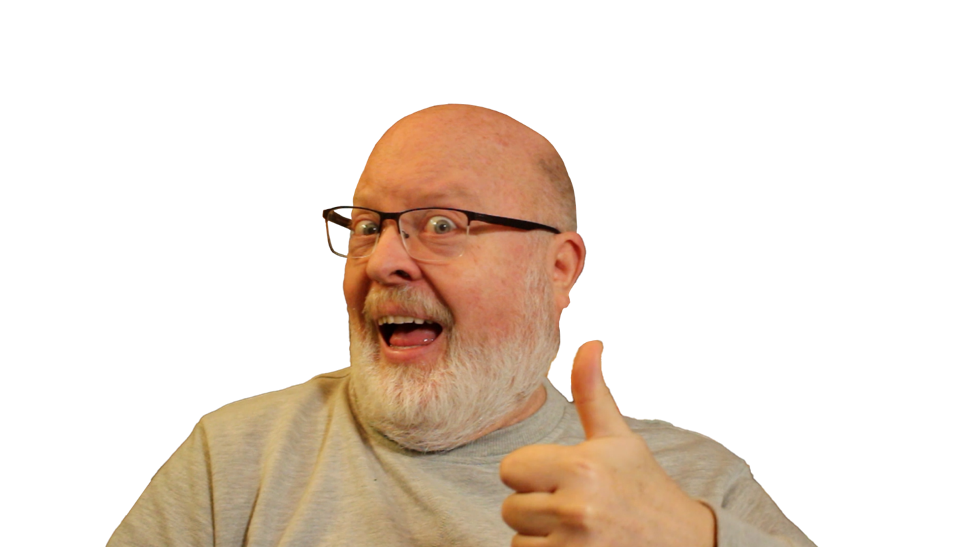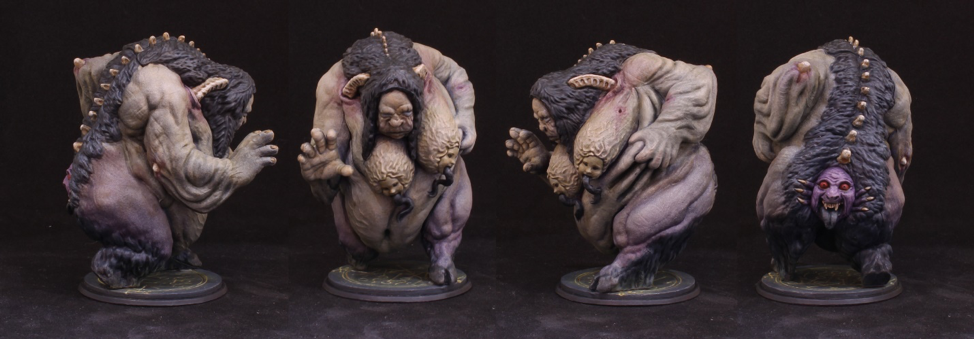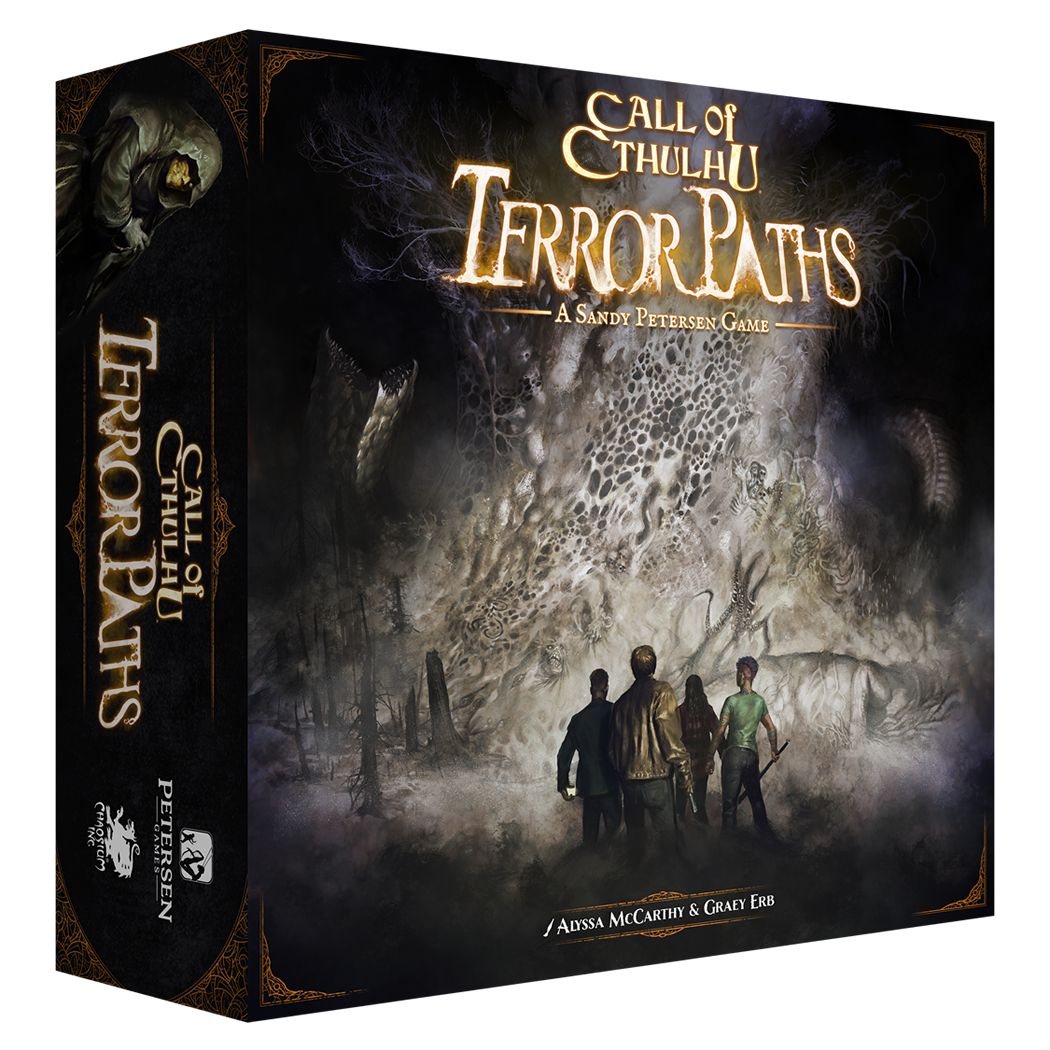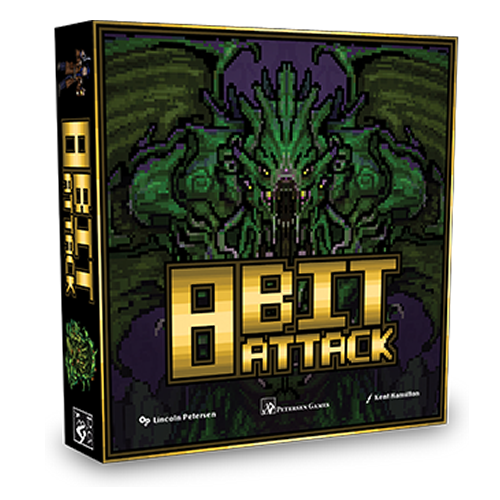How to Play With Kids
Designer Diary by Sandy Petersen
By Sandy Petersen
Most of my games are, frankly, not designed for pre-teens. While I love creatures such as the Magdalene we created for Planet Apocalypse – I don’t want to scare the grandkids with this kind of image!
But this puts me in a predicament. My grandkids want to spend time doing what Grandpa does. This means they want to play games. How do I do this with them? You may not be a grandpa, but you may well be a mom or dad or an uncle or an aunt, so you are faced with this same challenge if you want to share your hobbies with children. No, I can’t play Planet Apocalypse or Cthulhu Wars with the little ones, but there are other games.
Part of the problem is that many games normally played by kids are stultifyingly dull for adults. Monopoly, snakes & ladders, Candyland – these are objectively terrible games. For a game fan, it is a tedious chore to break one of these out. Nowadays, we have many games which are both faster to play than the “old standbys” as well as far more fun. So, part of the process is getting games that both you and the children will enjoy.
Fortunately, even if the children want to play one of my own company’s games, I have several which they can handle, particularly with me to guide them. My company produces Marry the Monster, Potions & Profits, 2-minute Dino Deal, Quivit, and Tooth Fairy which can all be played by pre-teens.
Also, since my grandchildren are so keen on games, they can handle games that are a little more complex than the age rating on games might indicate.
For instance, the game 8-Bit Attack is officially for ages 10+, but a few months ago, my 8-year-old grandson asked to play it with me and we did just fine. I even tried to cheat in his favor, so he’d win, but he caught me “making a mistake” and had me correct it.
Yes, I totally fudge results when playing with the kids so they can win more often, at least when they are young. As they get older, I do this less and less, not only because they are likelier to catch me, but also because they are improving. And of course, knowing they beat grandpa, the game expert, is empowering for a tween.
If you’re looking for other games to play with the smaller kids, I suggest some of these. Most are not by Petersen Games. Here’s a few not by my own company which they might enjoy.
- Monster factory
- King of Tokyo
- Rattlebones
- Zooloretto
- Pit
- Bohnanza
- Clue
- Hanabi
- Checkers
What to Avoid
Even more important than what the kids might like is what to avoid, and here are the general rules
Tedious Games
Kids have shorter attention spans, and games which drone on endlessly are uninteresting. Sadly, some of the so-called classics of gaming fit into this category. Risk and Monopoly, for instance, have no actual end point which of course means they often last past the time when the kids are interested. Also, since the kids are probably not as good at strategizing, they are less able to close the deal and beat you. Which means they generally lose or don’t stand a chance which isn’t as fun.
Early Errors
Some games let you make an early decision that can cripple you for the whole rest of the game.
I love Terra Mystica, but if you place your initial camps poorly as the game starts, it can be hard to catch up. It’s possible to lose Marvel Champions in the very first turn. If you have a game which is sensitive to such an error, it might poison the kids against games. They won’t know what to do in the early game and they may not have the patience or learning capacity to figure it out for the second game. So, choose games which are forgiving.
Complex Iconography
Some games use icons extensively. Examples of such games are Seven Wonders and Terraforming Mars. While these games are also fun, it’s possible that the icons will confuse and bewilder the children or force them to constantly ask you what something means and how to handle it. Again, this is best avoided until the children have a little more games under their belt.
But if you choose games that avoid these problems, and seem like they’d be fun, you can get your kids to think you’re cool way longer than you have any right!
About Sandy Petersen
Sandy got his start in the game industry at Chaosium in 1980, working on tabletop roleplaying games. His best-known work from that time is the cult game Call of Cthulhu, which has been translated into many languages and is still played worldwide.
He also worked on many other published projects, such as Runequest, Stormbringer, Elfquest and even the Ghostbusters RPG, and was instrumental in the creation of dozens of scenario packs and expansions. He also acted as developer on the original Arkham Horror board game. In 2013 he founded Petersen Games which has released a series of highly successful boardgame projects, including The Gods War, Evil High Priest, and the much-admired Cthulhu Wars. His games have sold tens of millions of copies worldwide, and he has received dozens of awards from the game industry.




